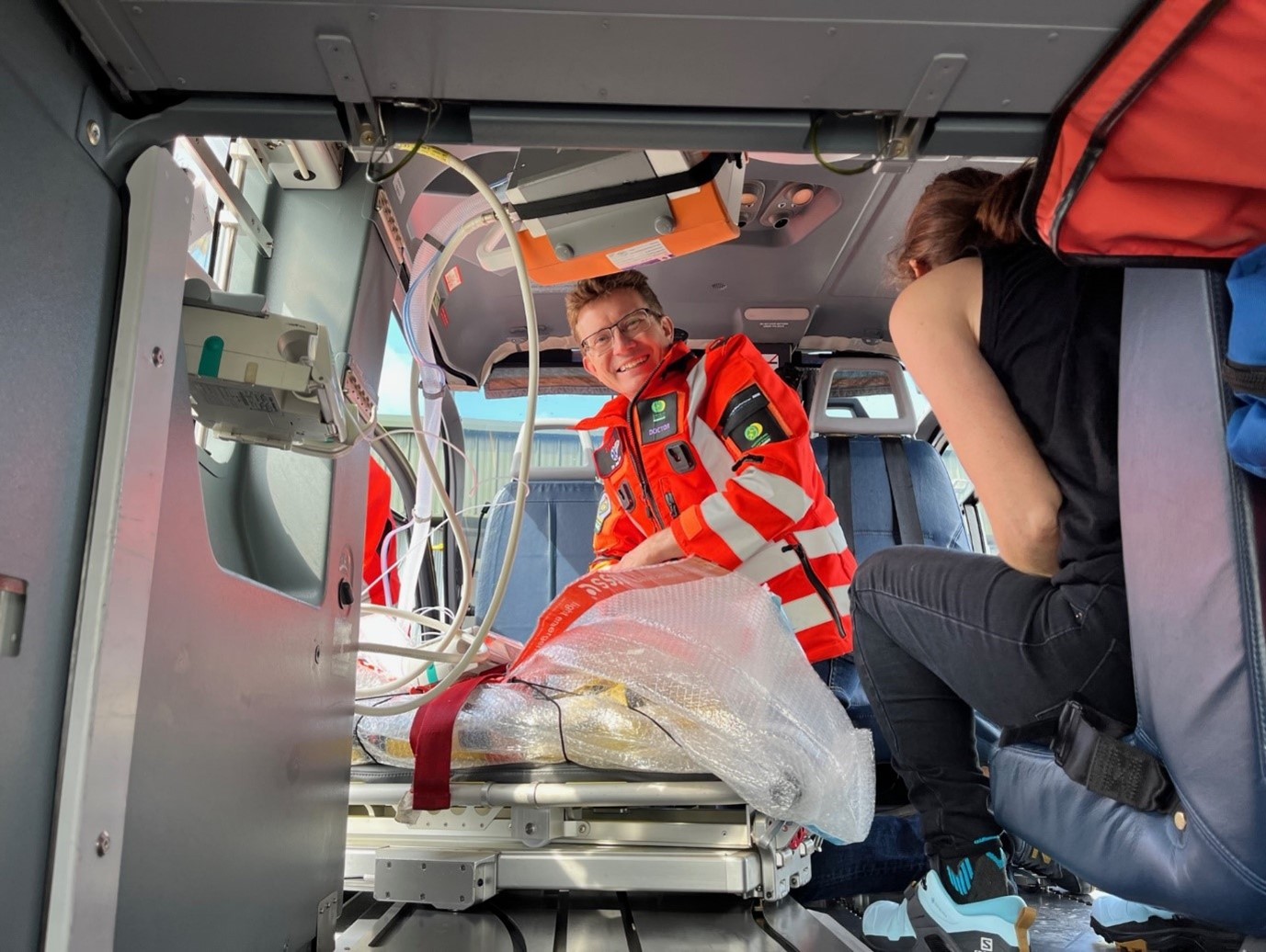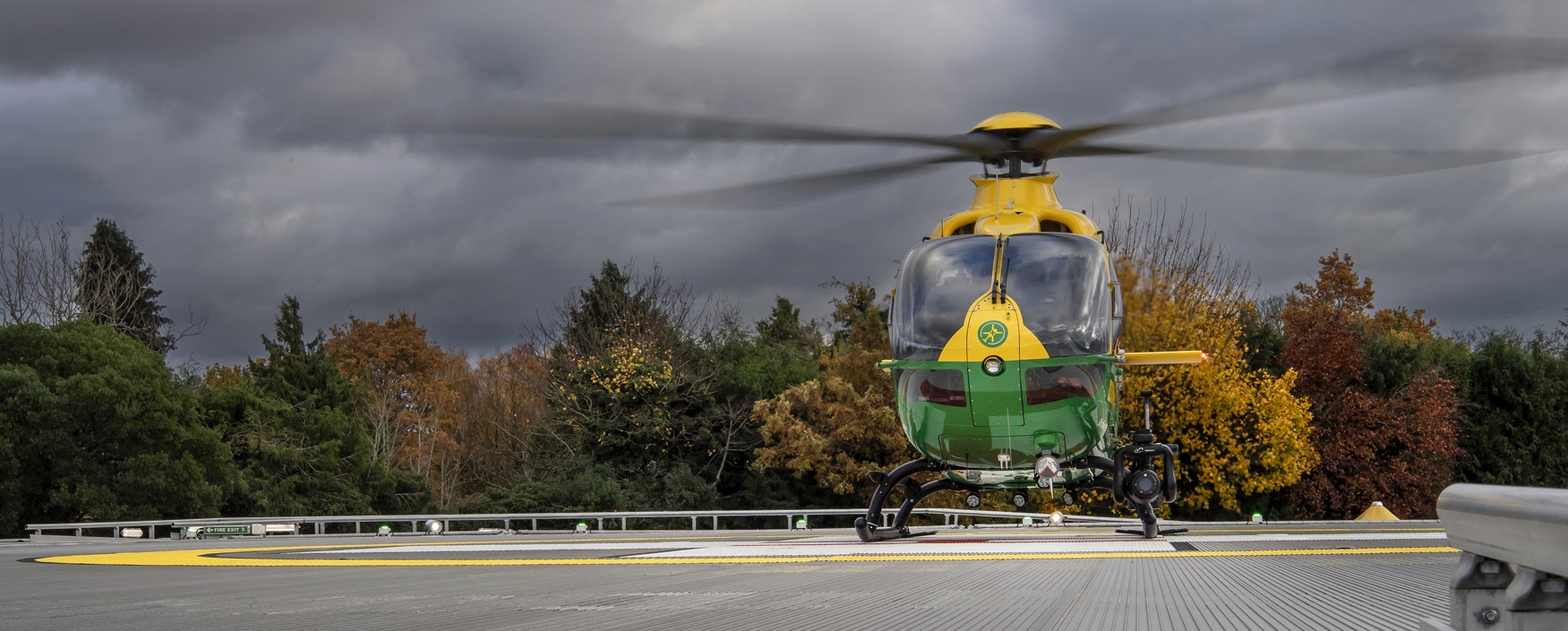Patients who have become critically injured or unwell on the Isle of Wight, rural Hampshire and surrounding areas often require treatment in University Hospital Southampton.
University Hospital Southampton is a major trauma centre, servicing the south of England as part of the national major trauma network. This hospital has the facility to treat patients from the point of their injury, through their rehabilitation and all the way to their discharge.
As the Air Ambulance that primarily provides care to the Isle of Wight, we regularly transfer patients from either pre-hospital locations on the Island, such as the roadside, or from the hospital itself (St Mary’s) to the specialist centre in Southampton.
The transfer of a major trauma or critically unwell patient is a complex task requiring a significant amount of thought, planning and practice. Because of this, we regularly run training sessions that focus specifically on how we can best optimise a patient transfer.

As part of a recent training day, the HEMS team were tasked to a simulated patient that had been injured in a road traffic collision on the Isle of Wight. The patient received critical lifesaving intervention and was then packaged as if they were to be flown to Southampton.
We were able to simulate this with a manikin and all the equipment that we would routinely carry on the helicopter. The vital aspect of this scenario was that we were able to use the aircraft to practice running through best methods of loading the patient, unloading the patient and how best to manage kit and medical equipment.
We were also able to spend some time simulating in-flight clinical emergencies to ensure we remain familiar with specific actions should the patient suddenly deteriorate.
Away from the clinical team undertaking this scenario, a separate team were on standby who could rapidly move people and kit away should the aircraft be tasked to a real-life emergency during the session, ensuring there were no delays to our operational ability.
Practicing these skills is vital to ensuring that all of the HEMS team are comfortable with methods of transporting and managing patients who may require air transfer to specialist centres.
The team put these skills into action when they were called to respond to a large-scale road traffic collision on the Isle of Wight in 2019.
Read Richard’s story from that day.




 Donate
Donate







